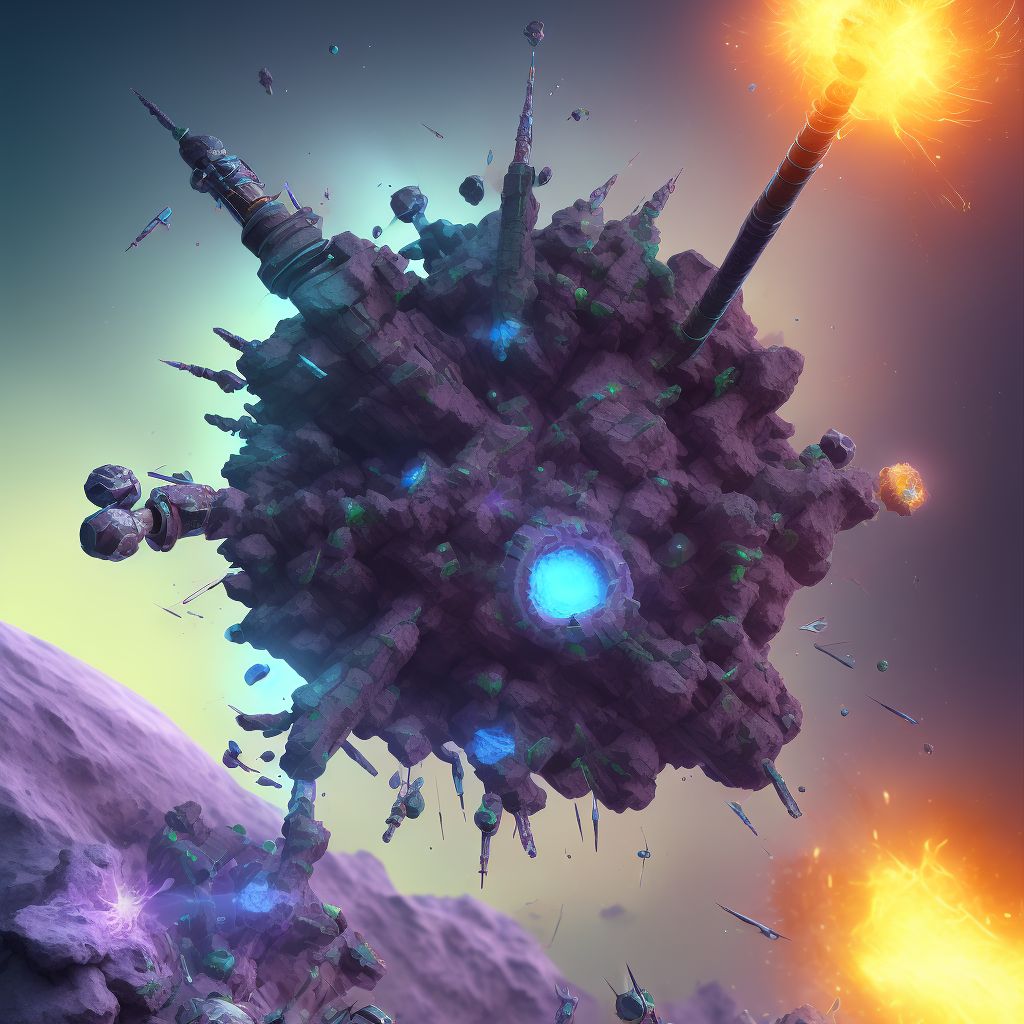
Displaced spiral fracture of shaft of unspecified fibula, subsequent encounter for open fracture type I or II with nonunion Save
ICD-10 code: S82.443M
Disease category: S82.443: Displaced spiral fracture of shaft of unspecified fibula
Displaced Spiral Fracture of Shaft of Unspecified Fibula: Understanding the Condition
A displaced spiral fracture of the shaft of the unspecified fibula is a specific type of fracture that occurs along the bone in a spiral pattern. This injury commonly results from a twisting or rotational force applied to the leg, leading to the bone breaking and separating into two or more fragments. Such fractures are often categorized as open fractures, which means that the broken bone pierces through the skin.
When a patient experiences an open fracture type I or II with nonunion, it indicates that the initial fracture did not heal properly, resulting in the bones failing to fuse together. This subsequent encounter refers to medical attention sought after the initial fracture, with the aim of addressing the nonunion and promoting proper healing.
Symptoms and Diagnosis
Common symptoms associated with a displaced spiral fracture of the unspecified fibula include severe pain, swelling, tenderness, and an inability to bear weight on the affected leg. To diagnose this condition, a healthcare professional will conduct a thorough physical examination, review the patient's medical history, and possibly order imaging tests such as X-rays or CT scans. These tests help determine the severity of the fracture and the extent of bone displacement.
Treatment and Management
As mentioned earlier, we will not delve into the treatment aspect in this article. However, it is important to understand that treatment for a displaced spiral fracture of the unspecified fibula with nonunion typically involves realigning and stabilizing the fractured bone fragments. This may include surgical interventions such as open reduction and internal fixation (ORIF), where the bone fragments are repositioned and secured with the help of metal plates, screws, or rods.
- Proper immobilization of the leg using a cast, splint, or brace may be necessary to promote healing and prevent further damage.
- Pain management techniques may be prescribed to alleviate discomfort during the recovery period.
- Physical therapy and rehabilitation exercises can aid in restoring strength, flexibility, and mobility to the affected leg.
Conclusion
A displaced spiral fracture of the shaft of the unspecified fibula is a complex injury that requires prompt medical attention. Seeking appropriate treatment and following a comprehensive management plan can significantly improve the chances of successful healing and recovery. It is crucial to consult with a healthcare professional who can provide personalized advice and guidance based on the severity and specific needs of each individual case.
Treatment of Displaced spiral fracture of shaft of unspecified fibula, subsequent encounter for open fracture type I or II with nonunion:
Treatment Options for Displaced Spiral Fracture of Shaft of Unspecified Fibula
A displaced spiral fracture of the shaft of an unspecified fibula can be a painful and debilitating injury. It occurs when the bone is twisted forcefully, causing it to break in a spiral pattern. If left untreated, this fracture can lead to complications such as nonunion, where the bone fails to heal pro...
To see full information about treatment please Sign up or Log in